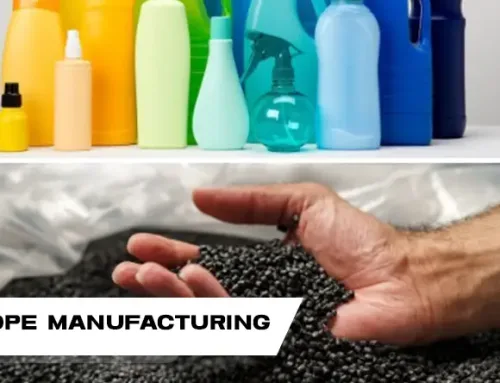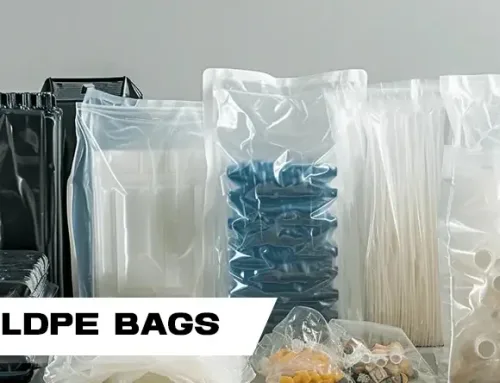If you’re working on a project involving insulation, construction, or even crafting, you’ve likely asked the question: is polystyrene waterproof? The simple answer is that while it is not technically 100% waterproof, it is highly water-resistant. This distinction is critical and depends heavily on the type of polystyrene you’re using.
This guide will answer all your questions, from “does polystyrene absorb water?” to “how to waterproof polystyrene,” and explore the differences between Expanded Polystyrene (EPS) and Extruded Polystyrene (XPS).
Understanding Polystyrene: EPS vs. XPS
Before we can determine if polystyrene foam is waterproof, it’s essential to know the two main types. For a more detailed comparison of these two materials, please refer to the article EPS vs. XPS.
Expanded Polystyrene (EPS)
Expanded Polystyrene (EPS) is the lightweight, white foam material you often see in packaging blocks or disposable coffee cups. It’s made from tiny solid polystyrene beads that are expanded with steam and fused together in a mold. While the beads themselves are closed-cell and don’t absorb water, the fusion process leaves tiny gaps, or interstices, between them.
So, is EPS waterproof? Not completely. Over time and with prolonged exposure, water can slowly seep into these gaps. This is why the question “does expanded polystyrene absorb water?” is so important—it does, but very slowly.
Extruded Polystyrene (XPS)
Extruded Polystyrene, often known by the brand name Styrofoam™, is typically blue or pink. It’s made by melting polystyrene crystals and forcing them through a die, which creates a uniform, closed-cell structure with no gaps.
So, is extruded polystyrene waterproof? It is significantly more water-resistant than EPS. The homogenous, closed-cell structure makes it extremely difficult for water to penetrate, giving it a much lower polystyrene water absorption rate. This makes extruded polystyrene insulation waterproof for most practical purposes, especially in below-grade applications.
The Core Question: Waterproof vs. Water-Resistant
So, let’s settle the debate. Is polystyrene water resistant? Absolutely. Is it truly waterproof? No.
- Water-Resistant: Polystyrene can resist the penetration of water to a significant degree. It will not be damaged if it gets wet and will maintain its structural integrity. This is why polystyrene boxes are waterproof enough for shipping perishable goods.
- Waterproof: A truly waterproof material is impervious to water, regardless of how long it is submerged.
What happens to polystyrene when wet? For short-term exposure, very little. It will shed the water and dry out. However, with long-term submersion (weeks or months), an expanded polystyrene foam board insulation might absorb a small amount of moisture, slightly reducing its insulative R-value. XPS foam is far more resilient in this regard.

How to Make Polystyrene Waterproof
For applications requiring complete impermeability, you may need to take extra steps. Here’s how to waterproof polystyrene foam:
- Use a Polystyrene Waterproof Coating: Applying a specialized sealant is the most effective method. Look for acrylic or elastomeric coatings that are compatible with foam and will create a continuous polystyrene waterproof membrane over the surface.
- Apply Waterproof Paint for Polystyrene: Many exterior-grade latex or acrylic paints will seal the surface of polystyrene. Always test on a small area first, as solvent-based paints will dissolve the foam.
- Use a Waterproof Glue for Polystyrene: When joining pieces, using a polystyrene waterproof glue is essential to prevent water from seeping through the seams. Polyurethane-based glues are an excellent choice.
By taking these steps, you are effectively making polystyrene waterproof for even the most demanding applications.
Applications: Where Water Resistance Matters
The high water resistance of polystyrene makes it suitable for a vast range of uses where moisture is a concern.
Construction and Insulation
In construction, the question “is polystyrene insulation waterproof?” is critical.
- Below-Grade Insulation: Extruded polystyrene waterproof boards are the industry standard for insulating foundations and basements because they resist moisture from the soil. The Dow extruded polystyrene board insulation waterproofing system is a well-known example.
- Wall and Roof Insulation: Both EPS insulation waterproof boards and XPS are used in walls and roofs. When properly installed with a weather barrier, they provide excellent thermal and moisture control.
- Moulding and Trim: Many homeowners ask, “is polystyrene moulding waterproof?” Yes, polystyrene trim is waterproof, making it a fantastic, rot-proof alternative to wood trim in bathrooms, basements, and for exterior use. The same applies to baseboards; a polystyrene baseboard is waterproof and won’t swell or warp.
Other Common Uses
- Marine Applications: Due to its buoyancy and low water absorption, EPS and XPS are used in docks, buoys, and as flotation aids.
- Coolers and Packaging: A polystyrene cooler is waterproof enough to hold ice and water without leaking or becoming saturated.
- Crafts and Hobbies: For outdoor decorations or projects, knowing how to make polystyrene waterproof with paint or coatings is key to longevity.
Frequently Asked Questions (FAQ)
- Is Styrofoam waterproof? Styrofoam™ is a brand name for extruded polystyrene (XPS). It is highly water-resistant and considered waterproof for most construction and insulation purposes. So yes, Styrofoam is water proof in a functional sense.
- Are polystyrene beads waterproof? Individual waterproof polystyrene beads are closed-cell and do not absorb water. However, a collection of loose beads will have air gaps that can hold water.
- Is high impact polystyrene waterproof? High Impact Polystyrene (HIPS) is a solid plastic sheet, not a foam. It is non-porous and completely waterproof.
- What about polystyrene glue waterproof properties? You must select a specific waterproof glue for polystyrene, like a polyurethane adhesive, to ensure a water-tight bond. Standard craft glues are not sufficient.
Conclusion
So, is expanded polystyrene waterproof? Not entirely, but it is very water-resistant.
Is extruded polystyrene waterproof? For all practical purposes, yes.
The key takeaway is that both forms of polystyrene are excellent choices for applications requiring moisture resistance. Their closed-cell structure prevents significant polystyrene water absorption, ensuring they maintain their structural integrity and insulating properties even when they can polystyrene get wet. For projects demanding absolute, long-term impermeability, enhancing the material with a polystyrene waterproof coating or membrane is a simple and effective solution. From waterproof polystyrene sheets for foundations to polystyrene molding waterproof enough for a shower, this versatile foam is a reliable performer in wet conditions.






Leave A Comment